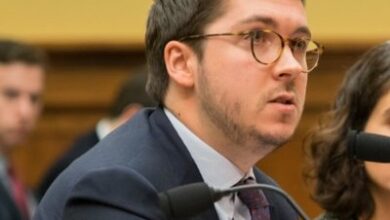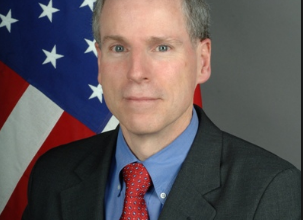Khamenei’s nuclear game: No public approval
Unlike the former Iranian supreme leader, Ayatollah Ali Khamenei rarely puts himself in a position of responsibility for crucial issues (with regard to domestic or foreign policy issues).
Since Khamenei is the final decision maker and he enjoys the ultimate authority of approving or rejecting foreign policy issues, understanding his stance in relation to critical issues is significant.
In regards to one of the most significant issues (the nuclear agreement between six world powers and Tehran, and the aftermath of the agreement), the paramount leader of the Islamic Republic has not publicly revealed his stance on whether he approves of the agreement or not.
Due perhaps to his desire to dodge responsibility, Khamenei is also sending the nuclear bill through Majlis (Iran’s parliament) rather than Iran’s Supreme National Security Council
Majid Rafizadeh
Although without his approval the agreement would not have been possible, Khamenei is still hesitant to show his public approval. But why?
Khamenei’s nuclear strategy
The major reason behind his reluctance to approve the nuclear agreement publicly is linked to the notion that he desires to have the authority to pull out of the nuclear agreement whenever he wishes without being blamed or held responsible for approving it in the first place. This happened in 2003 and 2004 when Iran pulled out of the nuclear deal. Essentially he wants his hand clean of the deal and free to leave it when he chooses.
In other words, Khamenei does not want to appear on the records as approving or rejecting the deal so that no one will be able to point a finger at him. In few years, when Iran achieves its demands and it decides to pull out of the agreement, Khamenei could make the argument that he never publicly or officially confirmed his approval of the agreement. He could argue that he just gave President Rowhani a chance for diplomacy! He could and likely will also blame the United States.
This is why the U.N. Security Council members plus Germany should require that the deal be officially signed and approved by Khamenei.
Due perhaps to his desire to dodge responsibility, Khamenei is also sending the nuclear bill through Majlis (Iran’s parliament) rather than Iran’s Supreme National Security Council. If the bill goes through the Supreme National Security Council, then it would need the public approval of Khamenei, which he does not desire to give. President Rowhani and his team are attempting to send the bill through the Supreme National Security Council, so they can get the public and official approval of the supreme leader and make the nuclear deal workable for a longer time, receiving more popular support for their second term of elections. But Khamenei is much too crafty to fall for this tactic.
His modus operandi is skillfully sidestepping and avoiding responsibility. He also evades showing his stance firmly, publicly, and on the record regarding critical issues. In order to preserve his political and parochial interests, he plays a cagey, astute and Machiavellian game of politics.
Khamenei is public and clear about one issue
Although Mr. Khamenei holds his cards close to his chest when it comes to economic and geopolitical issues, and although he has been secretive, ambiguous, and dodges responsibilities, he is indeed vocal about one particular issue: the Islamic Republic’s ideological and revolutionary principles.
The first ideological value is to spread the Shiite version of Islam by strengthening “axis of resistance,” creating Shiite proxies in predominant Sunni countries, and tipping the balance of power against Sunni countries and instead directing them in favor of the Islamic republic. This ideological principles occasionally coincide with his Persian vs Arab dichotomy.
The supreme leader has repeatedly insisted both in public and in private that he will not change Iran’s regional policies of supporting Shiite proxies or interfering in the affairs of Arab nations. The ayatollah pointed out “whether the [nuclear] deal is approved or disapproved, we will never stop supporting our friends in the region and the people of Palestine, Yemen, Syria, Iraq, Bahrain and Lebanon.”
Not only is Iran playing a critical military role, it is also a provider of weaponry to proxies or governments in four Arab capitals (Beirut, Baghdad, Sanaa, and Damascus). It has been recently discovered that Iranian weapons have been smuggled into other Arab countries. Most recently, these countries included Kuwait and Bahrain. Reportedly the huge arms cache seized in Kuwait was smuggled into the country to be utilized by a Hezbollah terror cell supported by the Iranian government.
In addition, Khamenei is vocal to the public about the second revolutionary and ideological principle: opposing the United States and its allies. Although Iranian military officials are tactically cooperating with the United States, Khamenei sees it as crucial to repeatedly reaffirm his stance on opposing the United States. As he pointed out “Even after this deal our policy towards the arrogant US will not change… In the present time, we have no negotiations with America on any other matter. There is no other matter. Everyone should know this. We do not negotiate with the Americans on regional issues, different domestic issues and international issues. Today, the only matter for negotiation is the nuclear matter. This will become an experience for us…. But if we see that they continue to behave in the same obstinate and deviant way, well, our previous experience will naturally be strengthened.”
In conclusion, Khamenei’s modus operandi is anchored in evasion of responsibility and avoidance of taking a clear stance on crucial foreign and domestic policy issues, in order to not be held accountable or criticized for the outcome. Nevertheless, in order to secure his social base and maintain his legitimacy, the only issue that he has been clear and vocal about is the Islamic Republic’s ideological and revolutionary principles. The six world powers should require Iran to have the deal signed and approved publicly by Khamenei in order to prevent what happened in 2003 and 2004 (when Iran pulled out of the deal) and in order to make the deal more lasting.
_____________________
Dr. Majid Rafizadeh, Harvard-educated Iranian-American political scientist, is president of the International American Council and serves on the board of Harvard International Review, Harvard International Relations Council, at Harvard University. He is also a member of the Gulf project at Columbia University. Rafizadeh served as a senior fellow at Nonviolence International Organization based in Washington DC. He has been a recipient of several scholarships and fellowship including from Oxford University, Annenberg University, University of California Santa Barbara, and Fulbright Teaching program. He served as ambassador for the National Iranian-American Council based in Washington DC, conducted research at Woodrow Wilson International Center for Scholars, and taught at University of California Santa Barbara through Fulbright Teaching Scholarship. He can be reached at Dr.rafizadeh@post.harvard.edu
alarabiya.net



